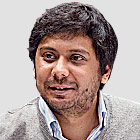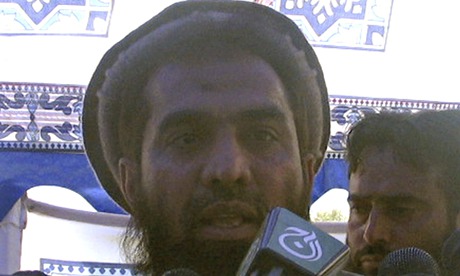Ashraf Jehangir Qazi in The Dawn
WE have an unmatched instinct for farce especially when we adopt our most grave and serious postures.
Another all-parties conference; a dash to Kabul; a rage of hangings; a 20-point National Action Plan to succeed the still-born Nacta and NISP; a committee for every point of the NAP; subcommittees for every committee; an overall oversight committee led by the prime minister who proclaims zero tolerance; a defining moment; a do-or-die challenge; an unending jihad against jihadis; eternal cooperation with the military which is invited to discharge his responsibilities; military courts of dubious value and still more dubious constitutionality; warrants of arrest against facilitated ‘fararis’ (absconders), etc.
‘Democratic’ political leaders who until recently were locked in mortal combat are now united in complicit support for a ‘soft coup’ and a resurrection of the doctrine of necessity.
The Supreme Court judges realising the gravity of the situation met under the chairmanship of the chief justice to assess how the prosecution of those accused of terrorism could be prioritised and completed expeditiously.
The credibility of our counterterrorism commitment will need to manifest itself in our foreign policy
They have, accordingly, agreed on an eight-point plan. Their plan has been summarily shoved aside by the 20-point plan. So much for the rule of law! Will the Supreme Court now accept amendments to the Constitution that are against its ‘basic structure’ and clear intent and purpose? The superior judiciary is not incompetent. It has been impeded by those who would now supersede it.
There has been no collective and public (civil and military) leadership apology to the bereaved families and the nation. No acknowledgement of responsibility — indeed guilt — for bringing about a state of affairs in the country that directly and indirectly made the atrocity possible, if not likely. How can anyone say ‘this is a watershed moment’ or ‘we have at last turned the corner’? Our 9/11, no less, have been so many self-inflicted tragedies in our short history including the fall of Dhaka, military surrender and the break-up of the country. There has been the loss of the Siachen Glacier and the fiasco of Kargil. There has been the intermittent war in Balochistan over decades. There were unprincipled deals ceding control in a number of Fata areas to dangerous militants.
These militants have become today’s monsters responsible for the school atrocity and murder and mayhem of every kind in Pakistan. There has been Abbottabad leading to national humiliation and isolation abroad.
Have we responded to all this criminal impunity with a greater concern for national security, governance and leadership? Why, or rather how will it be any different this time? Well, because enough is enough! Our cup of patience runneth over! The leopard will at last change its spots. Inshallah! Indeed, we have a plan for it. Mashallah!
We know the history of inquiry commissions in Pakistan. Even so, why has our suddenly ‘united’ civil and military leadership not immediately sought to ‘break the mould’ by establishing a genuinely independent, repeat independent, and competent commission to inquire into all aspects of how Dec 16 came to pass?
Such an inquiry should, needless to say, seek to ascertain who bore the greatest responsibility for the political and security milieu, as well as the specific lead-up circumstances including lapses, that resulted in the tragedy. It should make a meaningful and comprehensive set of concise, relevant and mutually reinforcing policy recommendations that are continuously monitored and reported upon to the nation on a weekly basis by our ‘born-again’ leadership.
Counterterrorism in Pakistan has to be part and parcel of a comprehensive state and, indeed, societal transformation process. Yes, this is a longer term effort. But given our truly rotten circumstances, unless our action plan is embedded in a simultaneous commencement of this longer-term and much bigger project, it will lose direction, momentum and credibility very rapidly.
Solemn assurances to the contrary are rhetorical and meaningless because outside this broader transformation context they cannot be credible. This credibility of our counterterrorism commitment will also need to manifest itself in our foreign policy.
Take Afghanistan. Unless we deny the Afghan Taliban and their various cohorts and networks safe havens, sanctuaries and cross-border supply routes on our territory, how do we expect our commitments to President Ashraf Ghani and his government to be taken seriously? How would we play an acceptable role in a peacemaking and political reconciliation process in Afghanistan if the government in Kabul has grave reservations about our reliability as a partner?
If the Afghan Taliban in Afghanistan are viable inside Afghanistan without our assistance we can still play a constructive role in facilitating reconciliation without seeking to use them as a check on India’s influence. If a terror-prone Afghan Taliban once again takes over Afghanistan, with or without our deniable assistance, it will be the TTP and not us who will gain ‘strategic depth’.
Take India. We need to have a predictable working relationship with it despite our continuing and significant differences on Kashmir and other issues. We will need to develop and implement modalities for managing our differences on Kashmir and building essential bilateral and regional cooperation to confront the challenges of the 21st century.
A state of ‘no war, no peace’ with a neighbour several times our size provides no context in which to pursue counterterrorism policies against organisations we have been prone to use as ‘proxies’, and which have done us no end of harm diplomatically and domestically.
Unless we radically rethink our external policy strategies how will we develop a credible counterterrorism policy and transform our economy and society? There is no indication of any of this in the national action plan. Will we finally do what we say and dismantle the whole infrastructure of terror inside Pakistan? Will we begin to rationalise our India and Afghanistan policies and come across as credible to ourselves and the international community?

